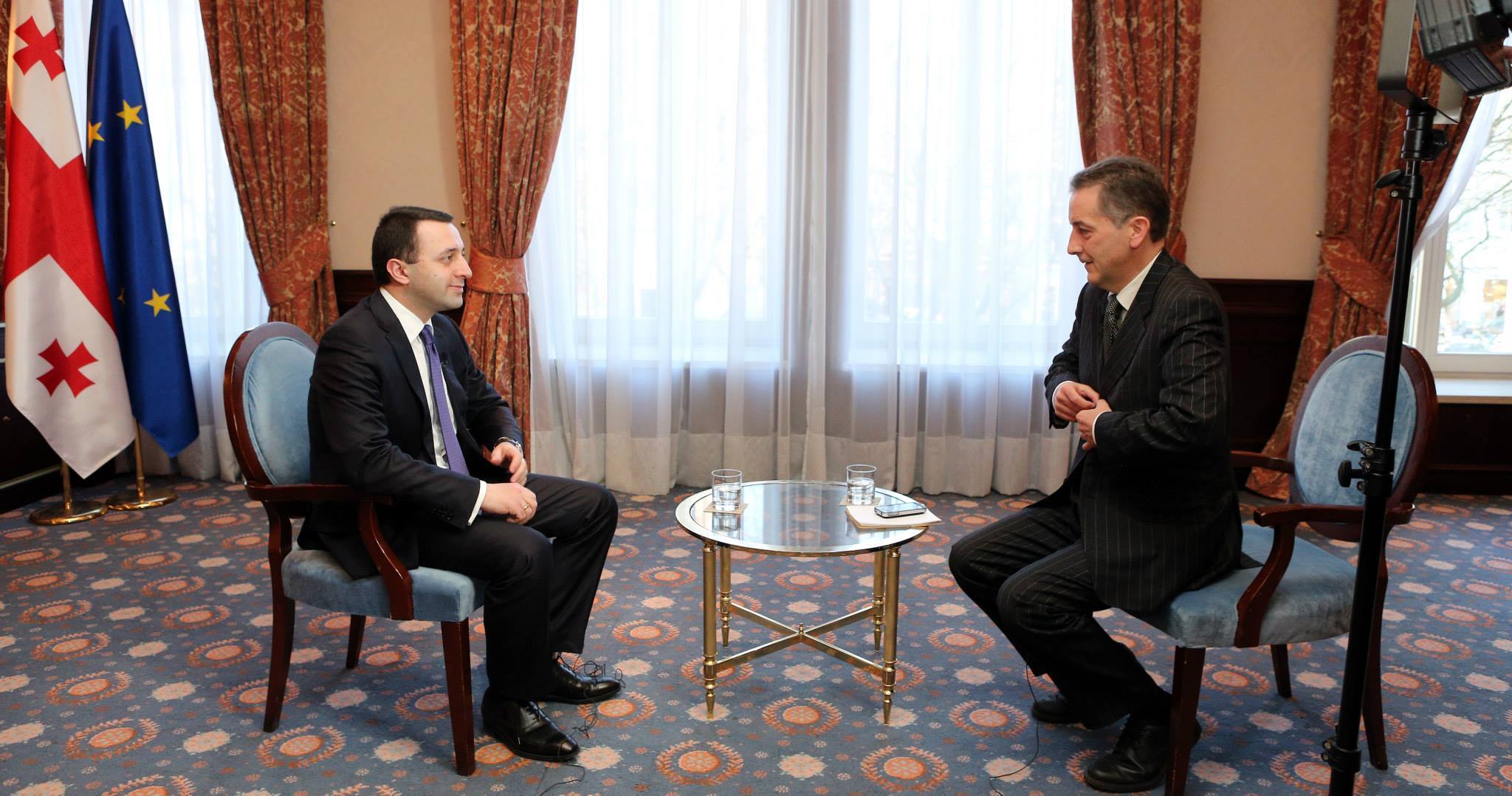BBC: Garibashvili has a lot on his plate

Georgia’s efforts to reconcile with Russia over the past five years after the five-day War in August 2008 was the focus of an interview between the BBC’s Chris Morris and Georgia’s Prime Minister Irakli Garibashvili.
The interview, titled Georgia PM Garibashvili in Sochi warning to Russia, highlighted Georgia’s warning to Russia that it would take action if Russia made any move to bolster the independent claims of two breakaway regions of Georgia during ceremonies at the Winter Olympic Games in Sochi.
Garibashvili told BBC he hoped there would be no official welcome for the "so-called Abkhazian and South Ossetian authorities” since Tbilisi had already expressed deep concern about Russia's decision last month to expand its Olympic security zone into Abkhazia.
"It was a tough decision not to boycott the Games but if there are any surprises we will of course react adequately," Garibashvili stated in the interview, adding he hoped there would not be any surprises. The Prime Minister refused to elaborate on how he would respond but said the option of withdrawing Georgia's Olympic athletes remained open.
"The reality is that there is only one country on our territory and this is Georgia," Garibashvili told the BBC, in response to a statement by Russia’s Minister of Foreign Affairs Sergei Lavrov stating that the problems between the two countries stemmed from Georgia's refusal to recognise reality.
The BBC interviewer stated: "At the age of 31, Irakli Garibashvili is the youngest democratically-elected head of Government in the world. But he has a lot on his plate.”
Morris said Garibashvili had been closely following events in Ukraine "with extreme concern."
In light of the situation in Ukraine, Georgia was determined to continue pursuing a path of closer relations with the EU and membership with NATO, stated the BBC article. Furthermore, the author argued that this was why many in Georgia were braced for a lot more pressure from Russia, once the Winter Olympic Games were over.
"Mr Garibashvili himself strikes a note of defiance, while trying to hold out an olive branch,” Morris wrote, deriving from the PM’s statement that Georgia was becoming less dependent on Russia.
"Russia doesn't have so many political or economic leverages on us," Garibashvili told the BBC.
"[But] we have to convince Russia that Georgia's Euro-integration is not a threat. Russia should be interested in having a strong, reliable and democratic neighbour,” he added.
 Tweet
Tweet  Share
Share